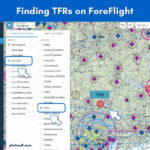The world without flies might initially sound appealing to many. Often considered pests, flies are known for their buzzing presence around food and less sanitary environments. However, the disappearance of flies would trigger a cascade of ecological consequences, revealing their crucial, often underestimated roles in various ecosystems. Their extinction would lead to significant disruptions across the planet, far beyond just fewer insects to swat away.
One of the most immediate impacts of fly extinction would be on decomposition. Many fly species, particularly blow flies and flesh flies, are primary decomposers. They are among the first insects to arrive at carcasses and decaying organic matter. Without them, the rate at which dead animals and organic waste break down would drastically slow. This slowdown would lead to a buildup of carrion and organic debris, disrupting nutrient cycling in ecosystems. The image below shows the scale of ecological changes that can stem from seemingly small changes in decomposer populations.
The absence of flies would also impact soil health. Fly larvae, in their role as decomposers, contribute to soil aeration and nutrient distribution. Their feeding and tunneling activities enrich the soil, making nutrients more accessible to plants. Furthermore, many fly larvae feed on dung, another critical component of nutrient cycling, especially in grazing ecosystems. Without flies to break down dung, soil fertility could decline in many regions, potentially affecting plant life and agricultural productivity over time.
Pollination is another crucial area where flies play a significant, though often overlooked, role. While bees are often celebrated as primary pollinators, flies are also important pollinators for a wide variety of plants, including many wildflowers and even some crops. Certain fly families, like hoverflies and fruit flies, are known to visit flowers for nectar and pollen, inadvertently transferring pollen as they move from plant to plant. The extinction of flies could lead to a decline in the pollination of these fly-dependent plant species, potentially causing a reduction in plant diversity and impacting plant reproduction cycles.
The food web would also be significantly altered by the disappearance of flies. Flies, in their various life stages from larvae to adults, serve as a vital food source for a vast array of animals. Birds, fish, amphibians, reptiles, and other insects all prey on flies. Their sudden removal would deprive these predators of a significant food source, potentially leading to population declines and even extinctions in predator species that heavily rely on flies. This cascading effect through the food web could destabilize entire ecosystems.
While predicting the long-term evolutionary consequences is complex, the sudden absence of flies could create ecological niches that other organisms might eventually fill. However, the immediate and medium-term impacts would be undeniably disruptive. Ecosystems are finely balanced networks, and the removal of even seemingly small components like flies can trigger significant and far-reaching consequences. The extinction of flies would serve as a stark reminder of the interconnectedness of life and the vital roles that even the most unappreciated creatures play in maintaining the health of our planet.
